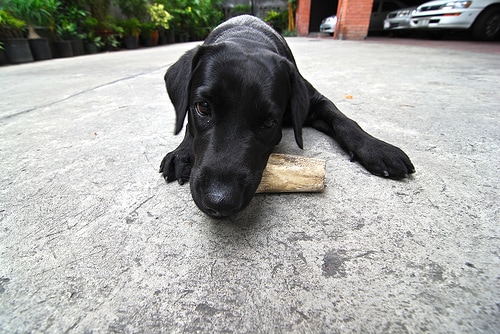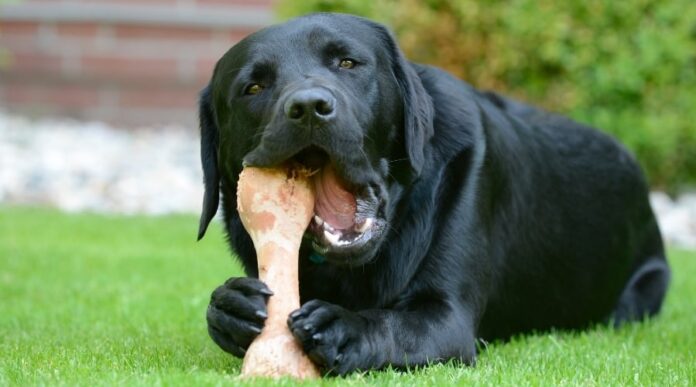Last Updated on March 2, 2024 by Fumipets
Certain dog owners are shocked to discover that some bones are okay for their pets to eat, while others are startled to hear that others aren’t. Raw bones, especially raw pig bones, are usually safe to eat. Cooked bones of any sort, however, are absolutely prohibited.
Feeding Raw Bones
Cooked bones should never be fed to dogs since they may splinter in your dog’s throat or stomach, suffocating him or causing serious internal damage. Raw bones, on the other hand, are perfectly fine for dogs. While some dog owners are concerned about salmonella and other bacterial illnesses, due to their extremely acidic digestive system, dogs are far less prone to acquire these infections. The bones of their victims are often consumed by wild dogs and wolves. Veterinarians like Ian Billinghurst believe that the best food for dogs is the same one that their forefathers ate: fresh, raw meat.

How To Feed
Small, soft bones that are big enough to prevent dogs from swallowing them whole are the safest bones for dogs to consume. Pig bones are larger and tougher than beef bones, therefore go for tiny pork bones. You may try somewhat bigger pig bones if your dog can eat them. Bones are often given as a treat to dogs, but they may also be fed as part of a raw food diet.

Benefits of Pork Bones
Pork bones are far more effective at cleaning your dog’s teeth than dog biscuits, and they don’t add any harmful sugars or additives to your dog’s diet. Pork is rich in protein, and protein should make up the majority of a dog’s diet. Dog owners who convert to a raw diet report a variety of improvements in their dogs’ health, including better skin and coat. Although no thorough scientific studies have been conducted to evaluate these changes, anecdotal information from dog owners is widely accessible. According to veterinarian Tom Lonsdale’s book “Work Wonders: Feed Your Dog Raw Meaty Bones,” there is evidence that raw bones enhance dental health. Because the body utilises more of the nutrients in bones than in packaged meals, dogs that consume raw bones have chalkier, less odorous stools.

Precautions
If you attempt an all-bone or pork bone diet, keep an eye on your dog for any negative responses, just as you would with any new meal. Pork is somewhat more prone than other meats to cause allergic reactions in dogs, so if you notice skin or stomach issues after eating pork, stop giving it. When you initially feed your dog a bone, keep an eye on her to make sure she chews it completely and doesn’t choke.
https://www.youtube.com/watch?v=BI4r_dquVj8


















